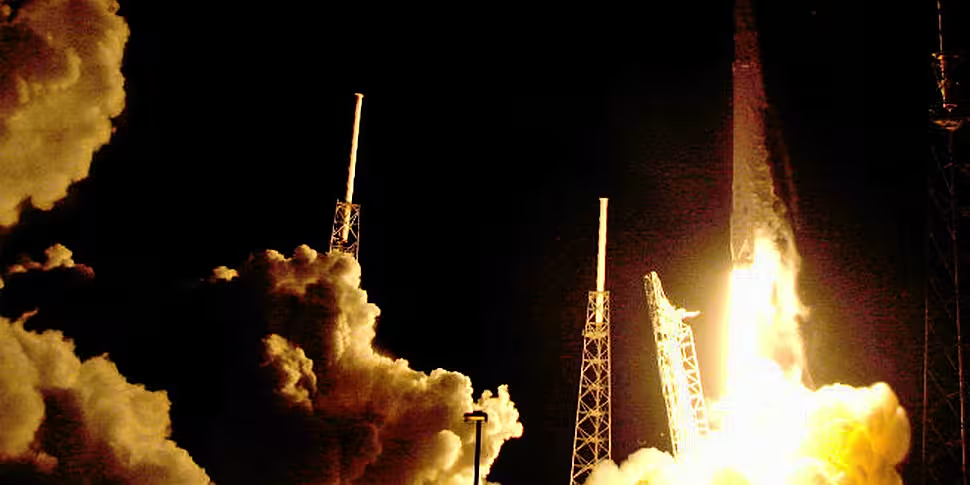Space X has launched its its fifth rocket in seven months at Cape Canaveral Air Force Station in Florida.
The Falcon 9′s Dragon capsule launched from Space Launch Complex 40 with almost 5,000 pounds of food, equipment and scientific samples for the International Space Station (ISS).
SpaceX is a rocket company that designs, manufactures and launches advanced rockets and spacecraft.
The company was founded in 2002 by CEO Elon Musk.
This is the ninth mission by SpaceX under NASA’s Commercial Resupply Services contract.
The company has made history following a successful landing of another Falcon 9 rocket this week. It marks the second time SpaceX has completed this type of ground landing - and the fifth time SpaceX has recovered one of its rockets post-launch.
Each Falcon 9 rocket costs around US$60m (€41.2m) - but with SpaceX landing and recovering them, it means they can be used for one than one mission.
Dragon on its way to @Space_Station, Falcon on its way home pic.twitter.com/EpfUKBmoWi
— SpaceX (@SpaceX) July 18, 2016
The cargo being transported in this mission is particularly important as it includes a number of scientific samples that will allow NASA researchers study the human body.
Julie Robinson, chief ISS program scientist, said: "We have about 930kg of research samples going up and about 580kg of samples coming back."
She said that one of the most interesting aspects of the research is that genetic studies that are taking place on earth are also being studied in space.
"Things like heart cells, muscles cells and bones cells, are all included in the cargo. All of those are going to be studied in terms of gene expression and how being in space affects those organisms."
According to NASA, the Dragon successfully made it into orbit and is due to arrive at the space station on Wednesday.
Once the spacecraft reaches the ISS, crew members will use the station's 17 meter robotic arm to reach out and capture the Dragon spacecraft and attach it to the station.









